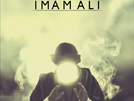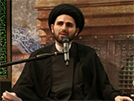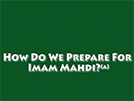Astronomy and Meteorology
- Details
- Hits: 2733
Astronomy and Meteorology
Predictions regarding future events; i.e. price fluctuations of grain, its shortage and abundance, the scarcity and intensity of rain and all other types of good and bad happenings; based on the knowledge of the effect of heavenly bodies on earth is known as meteorology. It is permitted if the one who is predicting only considers them a possibility but not a certainty because the final authority for all cause and effect lies with Allah (S.w.T.). Thus there is no harm in predicting the solar and lunar eclipses and the position of stars etc. because such predictions are based on complicated calculations and such predictions are usually true unless there is a mistake in calculation. The movement of the heavenly bodies follows well-defined laws and principles, hence there is hardly any chance of a wrong prediction.
On the other hand to predict future events with a belief that only the stars and heavenly bodies (without any Divine will) govern them is HarÄm and a kind of magic.
The Shaykh has concluded his discussion in Makasib by stating that predictions are of four types:
1) It is not HarÄm to predict the future position of heavenly bodies and other phenomena like the solar and the lunar eclipse etc.
2) It is also permitted to predict an occurrence if it is caused by the influence of the movement of stars or by the heavenly bodies coming near the earth but it must not be considered a phenomenon independent of the Divine will. It should be looked upon as the will of Allah (S.w.T.). In other words one should say that ‘when the comet etc. passes near Earth such a thing will happen by the permission of Allah (S.w.T.).’ The stars must not be considered the sole cause of the phenomena. Even if one makes such predictions by experience and without any scientific knowledge; it is allowed. One who has previous experience can predict that it will rain at night when his pet dog comes down from the terrace and comes inside the house, because this had happened before. Hence the past experience enables some to predict a future event.
3) To attribute the future events solely to the influence of heavenly bodies is considered HarÄm by all the jurists. Numerous traditions denounce these kinds of predictions.
The Holy Prophet (S) says:
“One who believes an astrologer and soothsayer has disbelieved in whatever was revealed upon Muhammad (S).”
Imam Ja’far as-Sadiq (a.s.) says:
“Accursed is the astrologer and accursed is the soothsayer and accursed is the magician.”
When Amir ul-Mu’minÄ«n ‘Ali (a.s.) was proceeding for the battle of Nahrawan one of his men who was an expert in astrology restrained him saying, “If you go at this time, I fear that you will not succeed in your aim.”
‘Ali (a.s.) told him that if he thought he could predict the auspicious and the inauspicious times of departure with accuracy, he was in error and said,
“Whoever believes your prediction has denied the Qur’an.” (Because according to Qur’an success and defeat all are subservient to Divine will). If a person has faith in the astrologer he will not seek Divine help and assistance when the prediction is favourable for him. In this way he will not give Sadqa nor pray for success and will eventually conclude that Allah (S.w.T.) controls nothing; thus he would become a disbeliever.
If an astronomer predicts with the belief that his predictions are subject to the final will of Allah (S.w.T.) then there is no harm for one to pray to the Almighty for success when the prediction is good; and in case of an unfavourable prediction invoke Allah (S.w.T.) for safety.
4) Khwaja Nasiruddin Tusi during one of his journeys stayed for the night at a water mill. The water mill was situated outside the town. Since it was a hot evening the Khwaja decided to sleep in the open. The mill-owner told him that it would rain that night. The Khwaja looked at the sky but could not make out any sign of rain. The mill-owner said, “I have a pet dog who comes down to the house when it is to rain at night.” Khwaja did not heed his advice and spent the rainy night in open but he was much amused by the incident.











